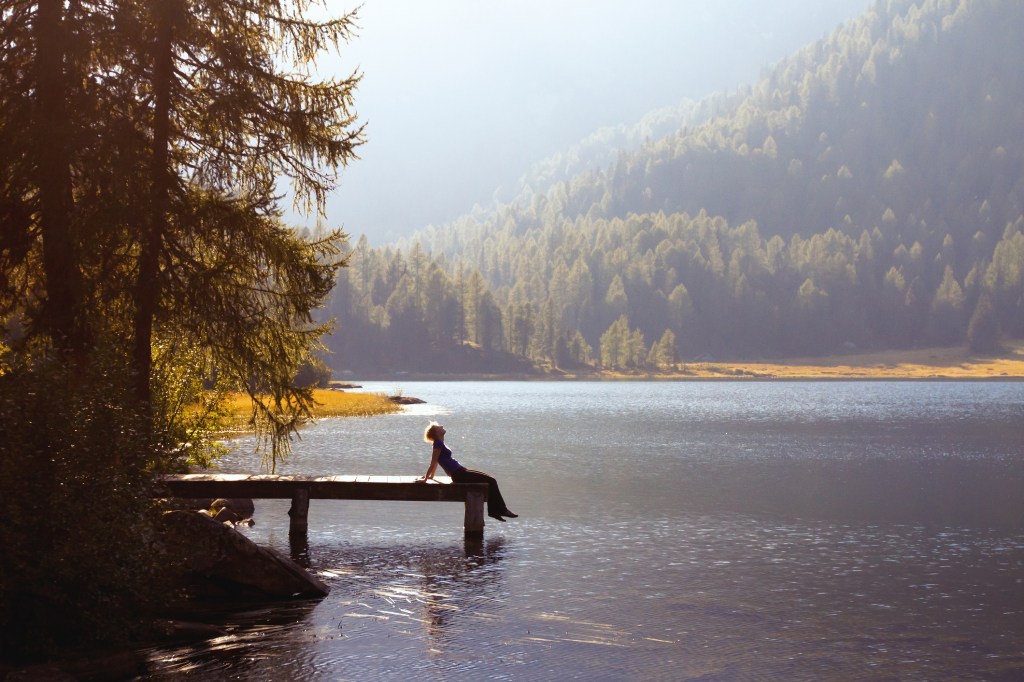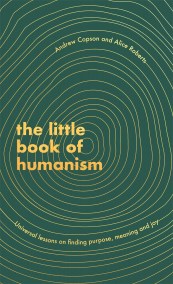How to live well – inspired by humanism

We only live once. This is not a drill. There is no second life to come.
Even the future in this one life is unpredictable and there are no guarantees about what will happen next, so it makes sense to enjoy life now.
For a humanist, there is no single meaning of life. The universe has no ultimate direction or purpose. Meaning is not something waiting out there to be discovered like a natural law or a distant star; meaning is something that we create. We give meaning to our experience and we find fulfilment and happiness in what we do in our lives.
Living well for a humanist is about seeking fulfilment and helping others to do the same. This fulfilment comes from our connections: our connections with fellow human beings – friends, family and others – and with the natural world. It also comes from our pursuits, the exercise of our curiosity, our appreciation of beauty in all its forms, and our sense of wonder.
There are as many potential good and meaningful lives as there are people.
- Our relationships with others are a key ingredient of the good life
We are warmed by the joys of love and family and friendship and close relationships. We gain comfort and security from the sense of being part of a wider community. Working with others to create a better world, we can find purpose in widening our interests beyond the limits of our own individual lives to improve the lives of others.
- The arts in all their forms – paintings, music, novels and poems, films and plays – are essential to our lives
They sharpen our awareness, enrich our understanding of the world and open our eyes to its beauty. They hold up a mirror to our own past and current experiences and open us up to new perspectives and different ways of being.
Have you ever been sad and felt like listening to a sad song? It is a profound moment to have what were your own private thoughts expressed in a beautiful way by someone else. Art and stories can show us things outside of our own experience, helping us to understand our own emotions better on reflection.
Art – any kind of art – can give us more clarity about our own thoughts and feelings, connect us with others, and teach us something about ourselves and them.
The poet Percy Shelley once said: ‘Poets are the unacknowledged legislators of the world.’ So much of our shared understanding of the world around us has been given shape and clarity by great thinkers and artists.
- Take time just to be
In a moment, sit somewhere comfortable and close your eyes. Try and sit like this for a few minutes.
Congratulations – you have just meditated! Meditation has been practised in religious and non-religious ways for thousands of years. You don’t have to be a dedicated student of meditation to enjoy some of its benefits.
People tend to find they feel better and can think more clearly as a result of having these little moments of quiet.
- Connect with the natural world, its beauty, its diversity and its richness
‘Keep close to Nature’s heart . . . and break clear away, once in a while, and climb a mountain or spend a week in the woods. Wash your spirit clean.’ John Muir
- Get moving!
Physical exercise is not only important for maintaining a generally healthy body – it is good for your mind as well. There’s evidence that regular exercise can help both to prevent and relieve depression.
Physical activity has positive effects on emotion, sleep and appetite. It doesn’t seem to matter too much what sort of physical activity you do – so find something you enjoy and indulge yourself. You’ll be happier and healthier as a result.
Find more ways to live well in The Little Book of Humanism: Universal lessons on finding purpose, meaning and joy, from which this extract is adapted.
The Little Book of Humanism
by Alice Roberts
by Andrew Copson
THE SUNDAY TIMES BESTSELLER
We all want to lead a happy life. Traditionally, when in need of guidance, comfort or inspiration, many people turn to religion. But there has been another way to learn how to live well - the humanist way - and in today's more secular world, it is more relevant than ever.
In THE LITTLE BOOK OF HUMANISM, Alice Roberts and Andrew Copson share over two thousand years of humanist wisdom through an uplifting collection of stories, quotes and meditations on how to live an ethical and fulfilling life, grounded in reason and humanity.
With universal insights and beautiful original illustrations, THE LITTLE BOOK OF HUMANISM is a perfect introduction to and a timeless anthology of humanist thought from some of history and today's greatest thinkers.



